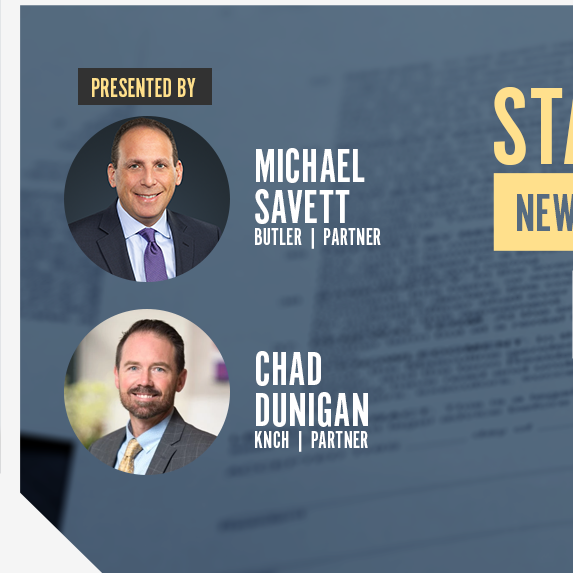
FLORIDA’S NEW COVID-19 LIABILITY PROTECTION LEGISLATION: WHAT IT MEANS AND THE LEGAL EFFECT MOVING FORWARD
April 6, 2021
The COVID-19 pandemic has affected the state of Florida, and the country, in ways that were unimaginable one year ago. The pandemic has taken a catastrophic toll on individuals and has had a devastating effect on many businesses, both large and small. As industries struggle to recover, and businesses begin to re-open and/or keep their doors open, a growing governmental concern has been the risk of opportunistic lawsuits for COVID-19 related claims; and the financial threat that these lawsuits can pose to the business community. A number of plaintiffs have already filed lawsuits in hopes of compensation for personal injuries that resulted from exposure to COVID-19, or from the failure of the business to protect their employees from exposure to the virus. These lawsuits have ranged from relatives of deceased family members filing lawsuits claiming that employers caused the decedents’ death because they failed to implement workplace safety measures, to businesses who had to close down filing first party suits against insurance carriers challenging the coverage denial for business interruption claims.
On March 29, 2021, Florida joined a multitude of states that have passed COVID-19 liability protection laws, in order reduce the threat of unlimited liability and legal exposure for businesses, educational, governmental, and religious institutions as they seek to re-open and recover from the economic effects of the pandemic. Governor Ron DeSantis signed into law SB 72, a bill that grants liability protections against COVID-19 related injury and death lawsuits.

What is the effect of Florida’s new Covid-19 Liability Protection Act?
The new legislation protects individuals, businesses, governmental entities, and religious organization against COVID-19 related claims by creating a heightened standard for Plaintiffs claiming COVID-19 related damages. The legislation creates pre-suit requirements before Plaintiffs can file civil actions based on COVID-19 claims, and heightens the standard of proof Plaintiffs must meet in order to be successful. Preliminarily, under the new law, Plaintiffs are required to file an affidavit signed by a physician actively licensed in the state attesting that within a “reasonable degree of medical certainty” the Plaintiff’s COVID-19 related damages, injury, or death occurred because of the defendant’s acts or omissions. This is similar to the pre-suit requirements in medical malpractice lawsuits. The Court must then determine whether the Defendant made a “good faith” effort in substantially complying with authoritative or controlling health standards when the cause of action accrued. If the Court determines that the Defendant did not make a good faith effort, then the Plaintiff meets the pre-suit requirements. A “good faith” effort is what a reasonable person would determine is a diligent and honest effort under the same circumstances.
In addition, Plaintiffs have a heightened standard that must be met in order to prove their claims. Instead of showing that the Defendant failed to make a good faith effort under the “preponderance of evidence” standard, the plaintiff will have to prove that the Defendant was grossly negligent in its good faith effort by “clear and convincing evidence.” Further, the new law limits the time for Plaintiffs to file suit.
Generally, negligence claims must be brought within four (4) years from the date the action accrued, with the exception of professional negligence and wrongful death claims, which have a two (2) year statute of limitations. Under the new COVID-19 Liability Protection law, Plaintiffs will have one (1) year from the date the action accrues to file their claim for damages or, if the cause of action accrued before the effective date of the act, within one (1) year of the effective date of the act.
Although the act provides for retroactive application to claims that have accrued before the effective date of the act and within one year of the effective date of the act, it does not have retroactive application to civil actions already filed at the time the act becomes effective.
It is clear that opponents of the new law hold the opinion that it will be harder for Plaintiffs to have their day in court against alleged negligent businesses. However, COVID-19 related lawsuits already presented evidentiary challenges in the ability of Plaintiffs to prove causation-namely, that they contracted COVID-19 due to a particular entity’s negligence and not from some other source. Nonetheless, this new legislation will provide some degree of liability protection to businesses concerned about potential exposure to reopening due to frivolous lawsuits, and it will serve to protect the state’s limited judicial resources by permitting only meritorious claims to proceed.
With the enactment of this new legislation, which limits access to the courts, constitutional challenges should be expected and anticipated. That said, one thing is certain, the new legislation creates a high threshold for Plaintiffs to meet in order to bring successful COVID-19 negligence claims.
For any further questions, please contact Eric Zivitz or Paula Solano.



